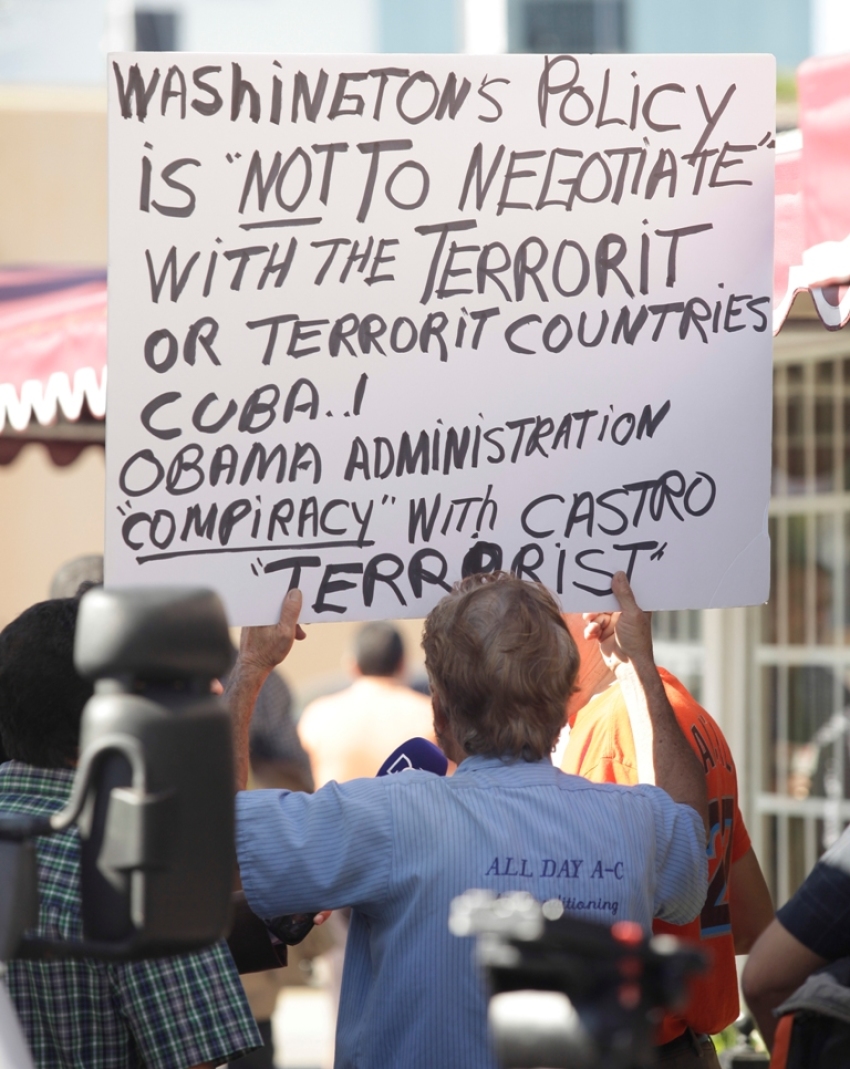'Catholic Without a Pope?' Some Cuban-Americans Unhappy With Pope's Involvement in US Lifting Embargo Against Cuba

Some voices in the Cuban-American community have expressed displeasure with Pope Francis due to his involvement in getting the United States to lift its embargo of the Republic of Cuba.
Pope Francis, the first Latin American pontiff in the Catholic Church's history, was a strong proponent of the United States lifting its restrictions on the Caribbean island nation.
In response to his connection to the U.S. normalizing relations with Cuba, some have vetted their frustration at the pope.
"I'm still Catholic till the day I die," a Cuban political exile residing in Florida told The Associated Press, "But I am a Catholic without a pope."
Another person who fled Cuba as a teenager to gain religious freedom told the AP, "I don't know what the pope was thinking. I see a certain naivete in the pope."
Since Cuba fell to a Communist revolution on New Year's Day 1959, the United States has attempted to isolate the island nation via embargo and severing of diplomatic ties.
This was influenced by a Cold War era concern over the nation spreading Communism to the rest of Latin America.
Last week, President Obama announced that the U.S. would pursue a different course of diplomatic relations with the isolated Communist state.
Changes will include renewed diplomatic ties, allowing the importation of goods from the island nation, and easing travel restrictions.
"Through these changes, we intend to create more opportunities for the American and Cuban people, and begin a new chapter among the nations of the Americas," said Obama.
The news had been made not long after a couple of American individuals imprisoned in Cuba were released in a prisoner swap.
In a statement released last Wednesday, the Vatican noted the pope's involvement in the effort to ease tensions between the surviving Cold War superpower and the small Communist state.
"The holy father wishes to express his warm congratulations for the historic decision taken by the governments of the United States of America and Cuba to establish diplomatic relations, with the aim of overcoming, in the interest of the citizens of both countries, the difficulties which have marked their recent history," said the statement. "The Holy See received delegations of the two countries in the Vatican last October and provided its good offices to facilitate a constructive dialogue on delicate matters, resulting in solutions acceptable to both parties."
The move by Obama was widely criticized by those in the Cuban-American community who had either had family persecuted by the Castro regime or were themselves the victims of such repression.
Florida Senator Marco Rubio, seen by many as a possible Republican candidate for president in 2016, stated that the moves to ease relations with Cuba was wrong.
"I know it won't lead to freedom and liberty for the Cuban people, which is my sole interest here," said Rubio in an interview on ABC's program "This Week."
News of the apparent thawing in relations between the Castro government and the U.S. comes as the anniversary of the 1959 revolution that brought the Castro family to power draws near.



























